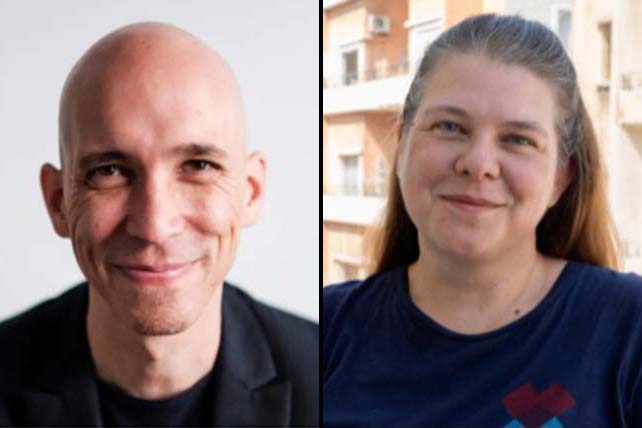(RNS) — Preemptive Love, a nonprofit long championed by Christian influencers and celebrities for its work in Iraq and elsewhere, plans to cut ties with its founders after former employees complained of an abusive work environment and misleading fundraising practices.
Jeremy and Jessica Courtney, former missionaries who founded the Preemptive Love Coalition in 2007, were placed on leave in the summer of 2021 to allow the charity’s board of directors to address concerns raised in a letter from more than two dozen former employees.
After reviewing the preliminary findings of an investigation by Guidepost Solutions, a consulting firm hired to review the former employees’ allegations, the board resolved that the Courtneys would not return from their leave of absence and no longer have a role with the organization, a representative of Preemptive Love confirmed to Religion News Service.
In mid-December, Ben Irwin, a former director of communications for Preemptive Love, posted a long article on Medium.com detailing his concerns about the Courtneys, presenting a starkly contrasting picture than the mission outlined by Preemptive Love’s leadership. According to the its website, the organization does relief work in the Middle East and Latin America as part of a broader goal of “working together to unmake violence and create the more beautiful world our hearts know is possible.”
In speeches and conversations with donors, Jeremy Courtney has for years said that Preemptive Love began with a cup of chai and the story of a girl with a broken heart. Courtney, who had moved to the Middle East intending to be a missionary after 9/11, had relocated to Iraq in 2007 to work on humanitarian relief.
As Courtney sat in a hotel, a man approached and told Courtney that his cousin’s daughter had a heart defect and no local doctor could treat her.
“You are an American. Is there something you can do?” Courtney recalled the man saying in a 2011 TED Talk given in Baghdad. “Ultimately, I decided to help this little girl,” he told the TED audience. “I decided to suspend my questions and to jump in and love first.”
That meeting led the Courtneys and some friends to form a nonprofit that would raise money to provide heart surgeries for Iraqi children. The group’s name was the Preemptive Love Coalition. “Now, unlike a preemptive strike, where I seek to get you before you get me,” Courtney explained in his TED Talk, “preemptive love is where I jump forward to love you before you love me.”
Preemptive love also meant trying to help people even if you lacked the expertise to solve their problems. That can-do attitude worked, and by March 2009, Preemptive Love had raised more than $220,000 to provide 26 heart surgeries for Iraqi children.
The following year, the organization raised about $300,000 to provide surgery for 23 more children, along with follow-up care. Preemptive Love would eventually pay for surgeries for hundreds of children and set up a program to train local doctors to perform lifesaving surgery.
After the rise of the Islamic State group, Preemptive Love shifted to providing relief for refugees in Iraq and other war-torn countries such as Syria. In 2020, Preemptive Love had its best year ever — raising more than $13 million to support a team of “global peacemakers” who provide food and water and other assistance while spreading the gospel of loving first.
The Courtneys’ work proved particularly attractive to Christian influencers and young Christians such as Dane Barnett, who were disillusioned with politics and wanted to change the world. A secular organization, Preemptive seemed to be infused with faith.
Barnett began raising funds for Preemptive Love in 2011, while a student at Cedarville University, a Christian school in Ohio. Barnett, who said he’d been born with a congenital heart defect, was drawn by the organization’s aid to heart patients.
“If I had been born in Iraq, I’d need a place like Preemptive Love to save my life,” he said.
Barnett had also grown concerned about the evangelical subculture he had grown up in, feeling it was too focused on power and not enough on living like Jesus. Preemptive Love, he said, offered a way to find meaning by helping others.

